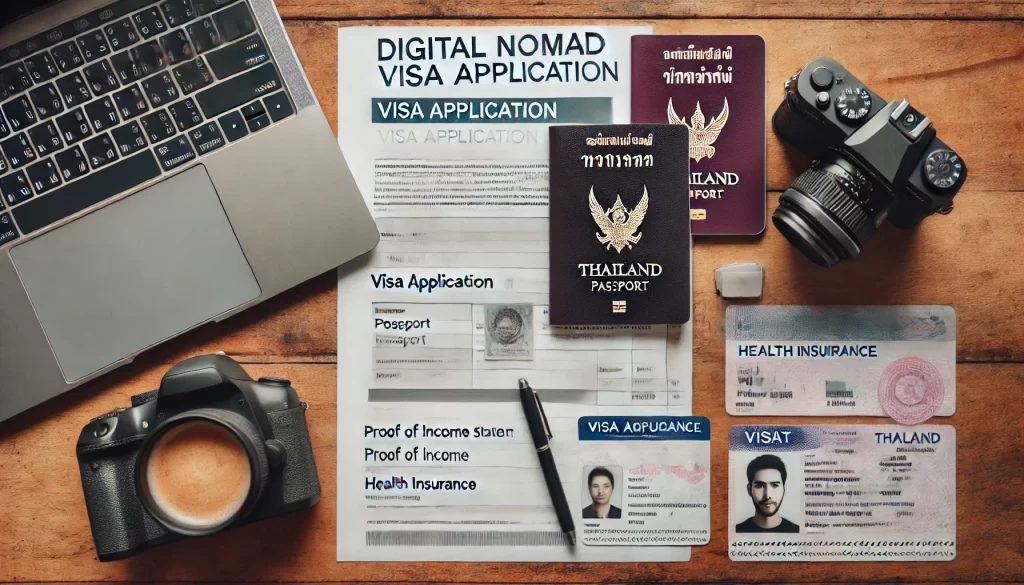Are you dreaming of working from a sun-soaked beach in Thailand while sipping on a refreshing coconut? 🏖️🥥 The digital nomad lifestyle in the Land of Smiles is no longer just a fantasy, thanks to the new Digital Nomad Visa. But before you pack your bags and laptop, there’s one crucial hurdle to overcome: the visa application process.
Navigating the bureaucratic maze of visa applications can be daunting, especially when you’re trying to focus on your work and travel plans. What documents do you need? How much money should you have in your bank account? What if you forget something important? 😰 These questions can quickly turn your tropical dream into a paperwork nightmare.
Don’t worry, fellow nomads! We’ve got you covered. In this comprehensive guide, we’ll walk you through every document you need for a successful Digital Nomad Visa application in Thailand. From essential personal documents to financial requirements, and from professional certifications to health insurance, we’ll leave no stone unturned. So, let’s dive in and make your Thai digital nomad adventure a reality! 🇹🇭💼🌴
Essential Personal Documents
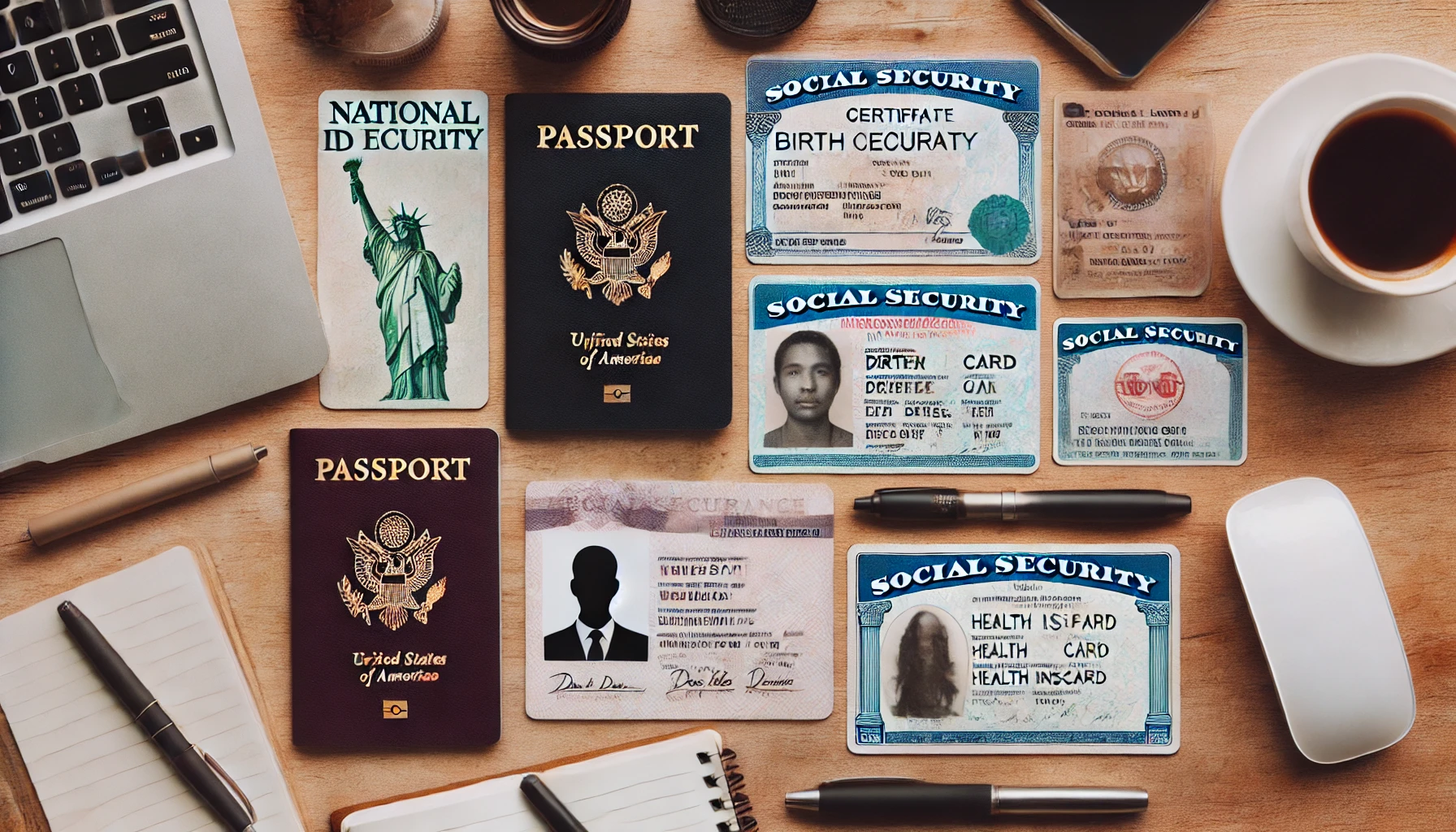
Valid passport details
When applying for a Digital Nomad Visa in Thailand, your passport is the most crucial document. Ensure your passport meets the following criteria:
- Valid for at least 6 months beyond your intended stay
- Contains at least two blank visa pages
- In good condition without any damage
| Passport Requirement | Description |
|---|---|
| Validity | 6+ months beyond stay |
| Blank pages | Minimum 2 |
| Condition | Undamaged |
Recent passport-sized photographs
You’ll need to provide recent passport-sized photographs that meet specific requirements:
- Taken within the last 6 months
- Full face, front view with a plain white background
- Size: 35mm x 45mm (2 inches x 2 inches)
Proof of identity
In addition to your passport, you’ll need to submit one of the following:
- National ID card
- Driver’s license
These documents serve as secondary proof of identity and should be valid and current.
Birth certificate
A birth certificate may be required in certain circumstances:
- If you’re applying for a dependent visa
- To prove familial relationships
- For age verification purposes
Ensure you have a certified copy or the original document available. If your birth certificate is not in English or Thai, you may need to provide a certified translation.
Now that we’ve covered the essential personal documents, let’s move on to the financial requirements you’ll need to meet for your Digital Nomad Visa application in Thailand.
Financial Requirements

A. Bank statements showing sufficient funds
To qualify for a Digital Nomad Visa in Thailand, you’ll need to provide bank statements that demonstrate financial stability. These statements should typically cover the last 6 months and show a consistent balance of at least $50,000 USD or its equivalent in your local currency. Here’s a breakdown of what your bank statements should include:
- Account holder’s name and address
- Bank’s name and contact information
- Account number (partially redacted for security)
- Transaction history for the past 6 months
- Ending balance for each month
| Requirement | Details |
|---|---|
| Minimum Balance | $50,000 USD or equivalent |
| Time Period | Last 6 months |
| Currency | USD or local currency (with conversion) |
| Statement Type | Official bank-issued document |
B. Proof of income or employment
In addition to bank statements, you’ll need to provide evidence of a stable income source. This can include:
- Employment contract or letter from your employer
- Freelance contracts or client agreements
- Pay stubs or invoices from the past 3-6 months
- Business registration documents (for self-employed individuals)
C. Tax returns from home country
Tax returns serve as additional proof of your financial stability and compliance with your home country’s laws. You should submit:
- Tax returns for the past 1-2 years
- Tax assessment or clearance certificate
- Proof of tax payments made
D. Investment portfolios (if applicable)
If you have investments, including them can strengthen your application. Provide documentation for:
- Stocks and bonds holdings
- Real estate investments
- Retirement accounts
- Other significant assets
Remember, presenting a comprehensive financial picture increases your chances of approval for the Digital Nomad Visa in Thailand. Ensure all documents are official, recent, and translated into English if necessary.
Professional Documentation

Resume or CV
Your resume or CV is a crucial document that showcases your professional background and skills. For a digital nomad visa application in Thailand, ensure your resume highlights:
- Remote work experience
- Relevant skills for digital nomad roles
- Professional achievements
Proof of educational qualifications
Submit copies of your highest educational degrees or diplomas. These documents validate your academic background and expertise in your field.
Professional certificates or licenses
Include any relevant professional certifications or licenses that demonstrate your expertise and credibility in your industry.
Letter of employment or client contracts
Provide evidence of your current employment or ongoing client relationships. This can include:
- Employment contract
- Recent pay stubs
- Client agreements or contracts
Business registration (for self-employed)
If you’re self-employed or run your own business, include documentation proving your business’s legal status. This may include:
- Business registration certificate
- Tax registration documents
| Document Type | Purpose | Key Points |
|---|---|---|
| Resume/CV | Showcase professional background | Highlight remote work experience |
| Educational qualifications | Validate academic background | Include highest degrees/diplomas |
| Professional certificates | Demonstrate expertise | Include relevant industry certifications |
| Employment/client proof | Verify current work status | Provide contracts or pay stubs |
| Business registration | Prove legal business status | Include registration and tax documents |
These professional documents are essential for your digital nomad visa application in Thailand. They demonstrate your qualifications, work status, and ability to sustain yourself financially while working remotely. Next, we’ll explore the health and insurance documents required for your application.
Health and Insurance Documents

Medical certificate
When applying for a Digital Nomad Visa in Thailand, a comprehensive medical certificate is crucial. This document should:
- Be issued within the last 3 months
- Confirm you’re free from communicable diseases
- Include results for tuberculosis, syphilis, and drug tests
Ensure your certificate is in English or Thai, with an official translation if necessary.
Proof of health insurance coverage
Thailand requires Digital Nomad Visa applicants to have adequate health insurance. Your policy should cover:
| Coverage Type | Minimum Amount |
|---|---|
| Outpatient care | 40,000 THB |
| Inpatient care | 400,000 THB |
Provide a certificate from your insurance company detailing your coverage and policy duration. This document must explicitly state that it covers medical expenses in Thailand.
Travel insurance policy details
In addition to health insurance, you’ll need to show proof of travel insurance. Your policy should include:
- Coverage for the entire duration of your stay
- Repatriation coverage
- 24/7 emergency assistance
Present a detailed policy document or certificate from your insurance provider. Ensure it clearly states the coverage period and benefits.
Remember, these documents are vital for your visa application. They demonstrate your ability to cover potential medical expenses and protect yourself during your stay in Thailand. Always check the latest requirements on the official Thai immigration website, as regulations may change.
Accommodation Proof
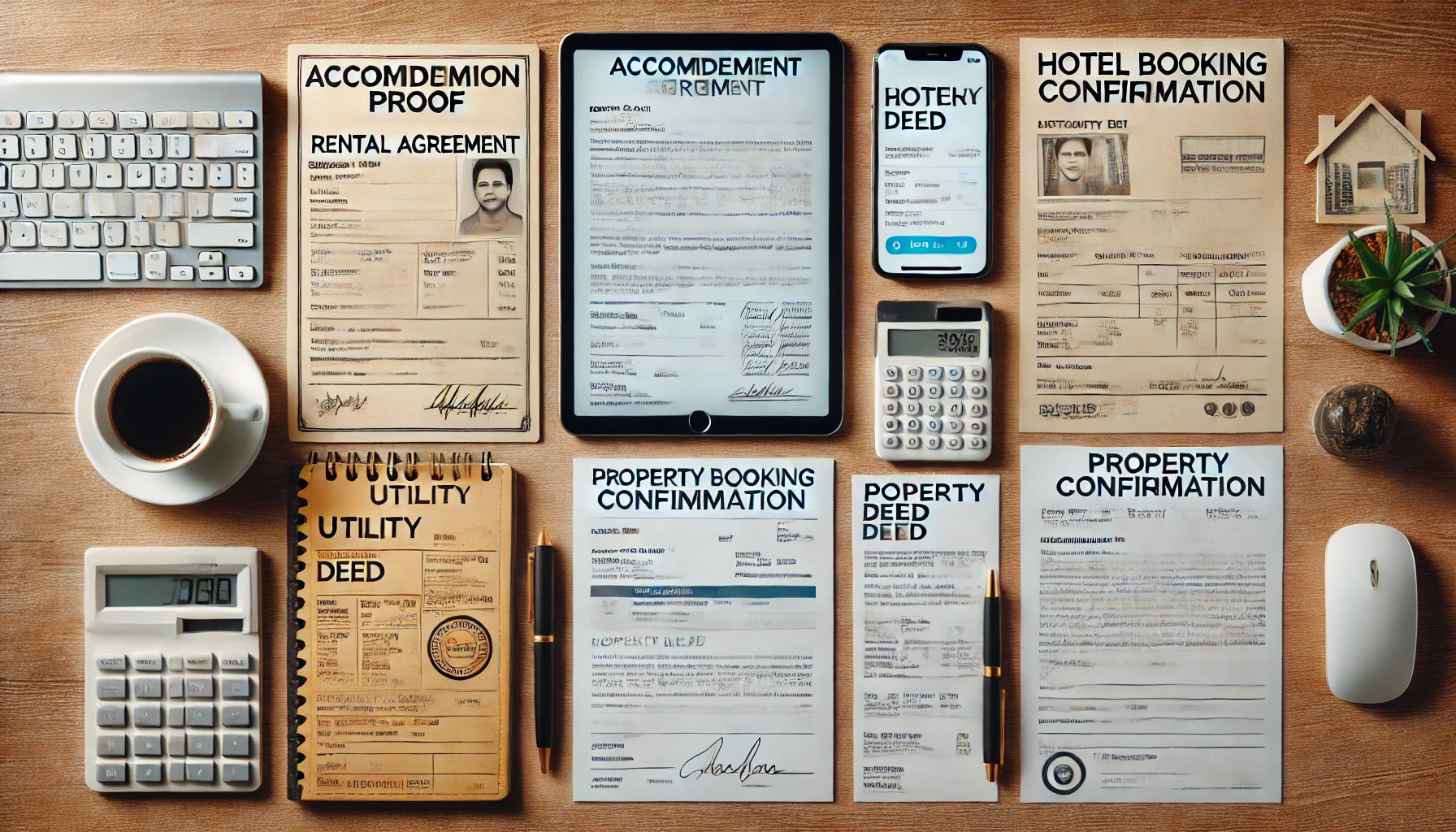
Hotel reservations
When applying for a Digital Nomad Visa in Thailand, providing proof of accommodation is crucial. Hotel reservations are often the most straightforward option for short-term stays. Here’s what you need to know:
- Booking confirmation: Ensure you have a detailed booking confirmation from a reputable hotel or booking platform.
- Duration: Your reservation should cover at least the initial period of your stay (e.g., 30-90 days).
- Hotel details: The reservation must include the hotel’s name, address, and contact information.
| Document | Required Information | Importance |
|---|---|---|
| Booking Confirmation | Dates, Hotel Name, Address | Essential |
| Payment Receipt | Amount Paid, Payment Method | Recommended |
| Hotel Contact Info | Phone Number, Email | Helpful |
Rental agreement
For longer stays, a rental agreement is often preferred:
- Lease contract: Obtain a signed lease agreement from your landlord or property manager.
- Duration: The agreement should cover the intended period of your stay in Thailand.
- Property details: Include the full address and description of the property.
- Landlord information: Provide contact details of the property owner or management company.
Letter of invitation (if staying with friends/family)
If you plan to stay with friends or family in Thailand:
- Official letter: Request a formal letter of invitation from your host.
- Host details: Include the host’s full name, address, and contact information.
- Relationship: Clearly state your relationship with the host.
- Duration: Specify the intended length of your stay at their residence.
Remember to have all documents translated into English or Thai if they’re in another language. Providing clear and comprehensive accommodation proof will strengthen your Digital Nomad Visa application for Thailand.
Additional Supporting Documents
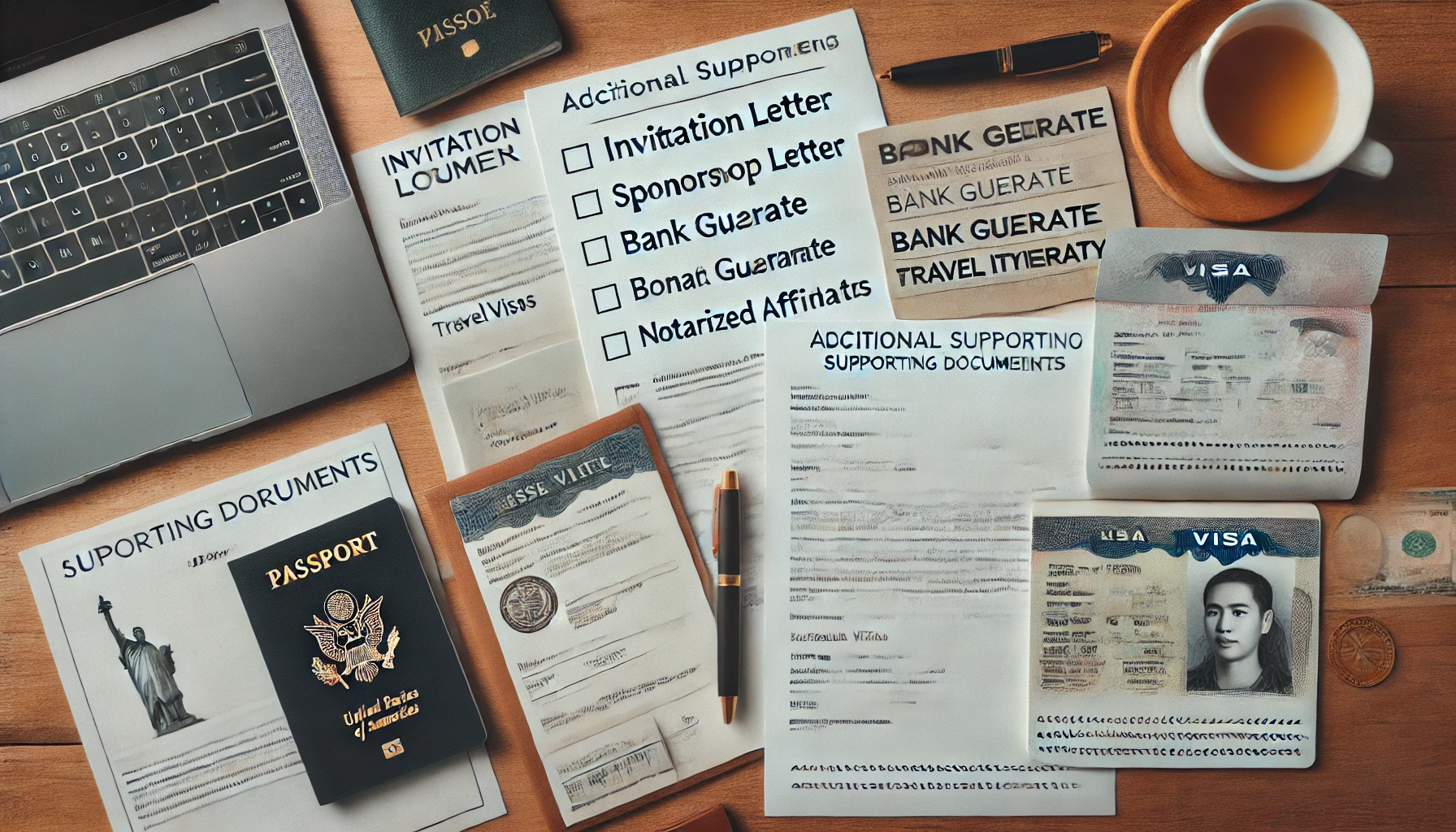
A. Criminal background check
To obtain a Digital Nomad Visa in Thailand, a clean criminal record is essential. Applicants must provide a criminal background check from their home country or country of residence. This document should:
- Be issued within the last 6 months
- Be apostilled or legalized by the relevant authorities
- Be translated into Thai (if not in English)
| Requirement | Details |
|---|---|
| Validity | Less than 6 months old |
| Authentication | Apostille or legalization |
| Language | English or Thai translation |
B. Letter of intent or purpose of stay
A well-crafted letter of intent is crucial for your application. This document should:
- Clearly state your purpose for staying in Thailand
- Outline your plans during your time in the country
- Demonstrate how you’ll contribute to the local economy
- Explain your remote work arrangements
C. Proof of ties to home country
To ensure you intend to return to your home country, provide evidence such as:
- Property ownership documents
- Long-term lease agreements
- Family ties (marriage certificate, birth certificates of children)
- Ongoing business commitments
D. Previous visa history (if applicable)
If you’ve previously held visas in Thailand or other countries:
- Include copies of past visas and entry/exit stamps
- Provide a brief travel history
- Explain any visa overstays or rejections (if applicable)
This information helps immigration officials assess your reliability as a traveler and your adherence to visa regulations.
Application Forms and Fees
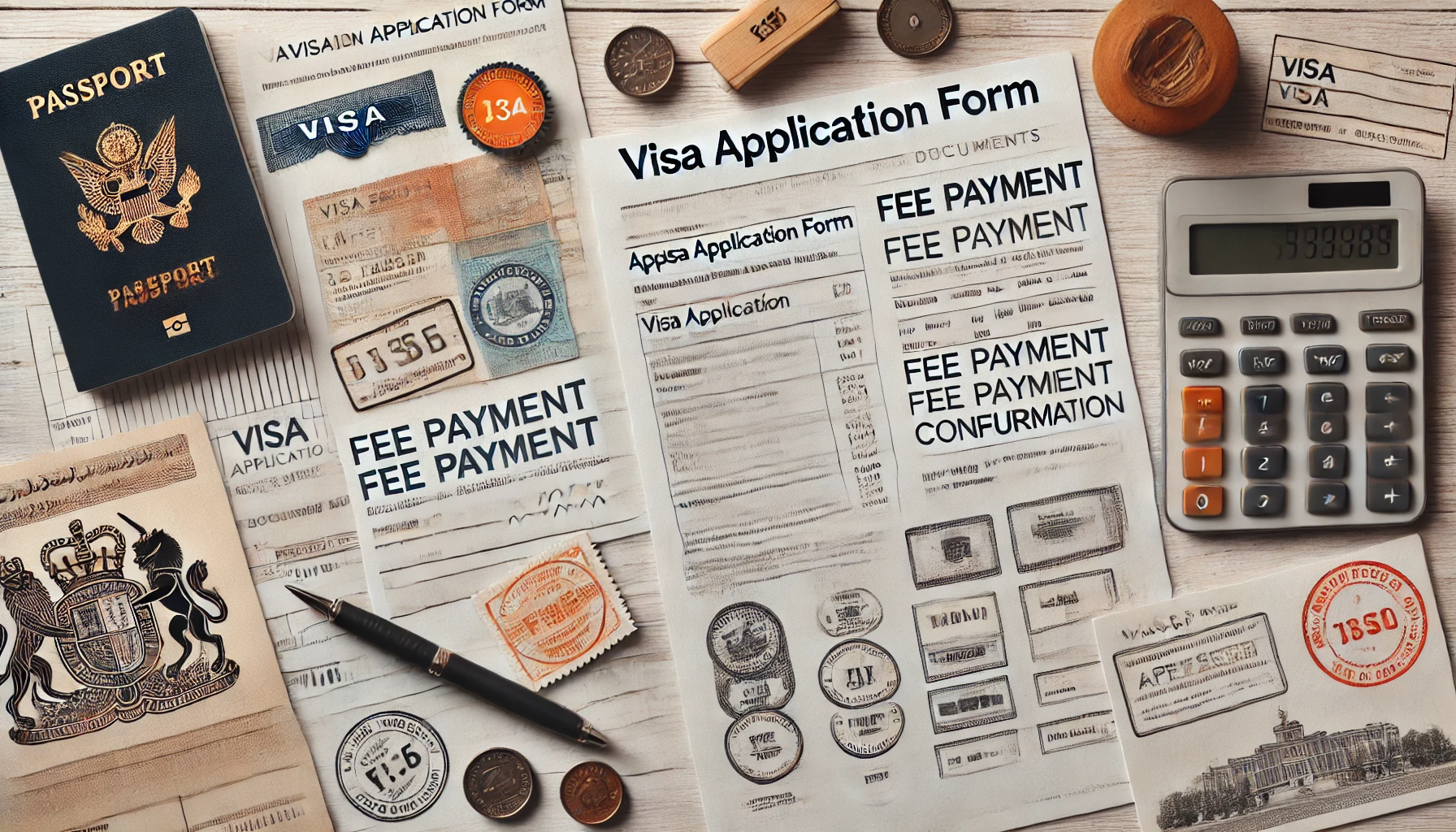
Completed visa application form
The cornerstone of your Digital Nomad Visa application is the completed visa application form. This document must be filled out accurately and completely to avoid delays or rejection. Here are key points to remember:
- Download the latest version from the official Thai embassy website
- Use black ink and write in block letters
- Answer all questions; mark N/A if not applicable
- Sign and date the form
| Form Section | Details Required |
|---|---|
| Personal Info | Full name, DOB, passport details |
| Contact Info | Current address, email, phone number |
| Travel Plans | Intended arrival date, duration of stay |
| Employment | Current occupation, employer details |
Visa fee payment receipt
Securing your Digital Nomad Visa requires payment of the appropriate fees. The visa fee payment receipt serves as proof of this transaction. Remember:
- Fees vary based on visa duration and nationality
- Payment methods may include bank transfer or credit card
- Keep the receipt safe; it’s a crucial part of your application
Appointment confirmation for visa submission
After completing your form and paying fees, you’ll need to schedule an appointment for visa submission. The appointment confirmation is your ticket to this crucial meeting. Key points:
- Book your appointment through the official embassy website
- Choose a convenient date and time slot
- Print or save a digital copy of your confirmation
- Arrive at least 15 minutes before your scheduled time
With these documents in hand, you’re well-prepared for the final step of your Digital Nomad Visa application process. Next, we’ll explore some tips to ensure a smooth application experience and increase your chances of approval.
Gathering the necessary documents for your Digital Nomad Visa application in Thailand is a crucial step towards embarking on your remote work adventure. From personal identification and financial proof to professional credentials and health insurance, each document plays a vital role in demonstrating your eligibility and commitment to the digital nomad lifestyle.
Remember to carefully review all requirements and prepare your application package well in advance. By ensuring you have all the essential documents in order, you’ll streamline the application process and increase your chances of approval. Thailand’s Digital Nomad Visa offers an exciting opportunity to experience the country’s rich culture while pursuing your career goals – so take the time to get your documentation right and set yourself up for a successful stay in the Land of Smiles.

